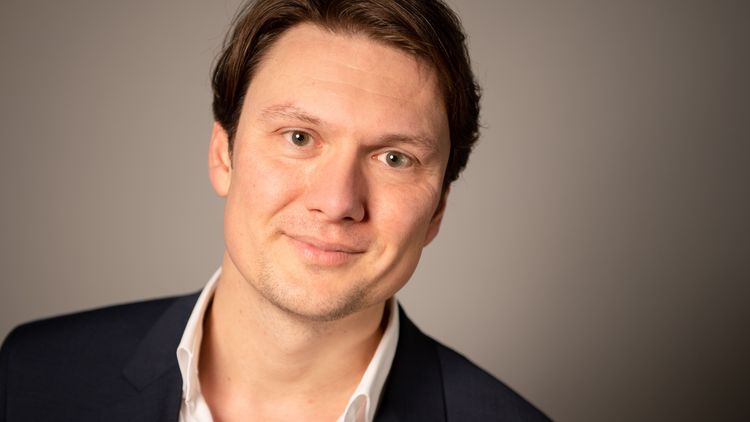The challenges we face in the current pandemic are “unprecedented”, says Mark Schweda, Professor of Medical Ethics at the University of Oldenburg. An interview about intensive care as a scarce resource, trust in the nation state, and what comes after the state of emergency.
Politicians, doctors and other people in positions of responsibility are facing many difficult decisions in the coronavirus crisis. What considerations should take priority if hospitals in Germany too face a shortage of ventilators for patients in intensive care?
First of all, we must fervently hope that we don’t end up in the situation of having to decide who receives life-saving medical treatment and who doesn’t, as that is probably one of the most difficult moral decisions doctors can ever be faced with. Their job is to give each and every one of their patients the best possible treatment. If the situation should escalate to the point where there are more patients who require ventilator support than there are ventilators, we must not try to avoid the decision but deal with it openly.
What do you consider important in this process?
That we don’t leave doctors with the responsibility of making such grave decisions on their own. There must be clear and justifiable principles and standards for dealing with such tragic cases of conflicting interests. And it must be ensured that the choice does not rest with individual doctors, but that several involved persons take the decision and can assume responsibility for it together. Nursing staff should be involved, for example. And there should be possibilities for medical and nursing staff to talk to someone about their experiences and decisions, so that they themselves can come to terms with this.
The German Interdisciplinary Association for Intensive Care and Emergency Medicine (DIVI) has developed guidelines to help medical staff make a “just decision”. The guidelines foresee a selection among all patients – irrespective of age or place of treatment – in order to ensure that “as many patients as possible can benefit from medical care in a crisis situation”. Is this the right approach?
Absolutely! Selecting patients on the basis of specific personal characteristics or the social group they belong to would be morally indefensible in my opinion. This explicitly applies also for patients who have reached a high age, a factor which has been discussed as an elimination criterion. Also from a constitutional point of view, the application of such personal criteria would hardly be admissible. All individuals are equally valuable per se and have the same right to life.
So what is the focus then?
The decisive factor is the chances of intensive care measures being successful. It’s about assessing a tragic case of conflicting interests and weighing up which patient has the higher chances of survival and the best overall prognosis with the use of limited resources. I would also like to stress another aspect of the recommendations which I consider to be of crucial importance: those who would no longer receive intensive care in such a scenario should by no means be abandoned to their fate. On the contrary, we would have the duty to ensure that they receive the appropriate palliative care.
At the moment coronavirus patients from France, Italy and other countries are being brought to German hospitals for treatment. If the number of cases here in Germany continues to rise, it might be necessary to review such measures. What do you think of the mostly national efforts from a medical ethics perspective?
In the current acute crisis, the nation state certainly appears to still be the most credible and effective political authority in most cases. In my opinion this is especially true of our state, the Federal Republic of Germany. Of course it’s a good thing that there is also active solidarity between nation states, and that for example we are helping our European neighbours who are currently far worse affected than we are as much as possible. Stronger coordination at the European and international levels also seems highly desirable, but will require considerable time and communicative effort. Ultimately, an internationally coordinated political strategy is needed to combat global threats like a pandemic effectively. But we can all see for ourselves right now how difficult this can be to achieve.
And when we look beyond the coronavirus patients: is it legitimate to put the welfare of other patients on hold for the time being?
It is to be feared that there will soon be a surge in the number of severely ill Covid-19 patients, and that this will stretch our healthcare system to the limits of its capacity. This would ultimately have major consequences for all those who depend on medical care. So it seems fundamentally right to me to first focus on allocating the available resources in a foresightful and responsible manner. This also means examining carefully which medical measures are really necessary and urgent at this point in time. Providing intensive care to those with a life-threatening illness must take priority. In the event that we also reach the limits of our capacities in intensive care, the recommendations of the DIVI stress that the prioritisation process should of course include not just Covid-19 patients, but all patients in need of intensive care.
Other consequences for people’s health must also be taken into account – such as increased mortality rates as a result of unemployment, as predicted by experts, domestic violence or the potential economic collapse of hospitals. What sacrifices should a society make in order to slow the spread of the pandemic?
It seems to me that the healthcare, health policy and social challenges we face with the coronavirus pandemic are unprecedented in the history of the Federal Republic of Germany. The same goes for the sometimes extremely drastic and far-reaching measures that political leaders are adopting in their efforts to combat it. On top of this there is an encroachment on individual basic rights and freedoms. All these measures can only be an immediate, temporary reaction to an acute threat the nature and seriousness of which is difficult to gauge for us all at this stage.
A public debate is beginning about what comes after the corona crisis. Is this justified?
I have been very impressed in recent weeks with the far-sighted and responsible approach of German politicians, as well as the spontaneous displays of solidarity and social cohesion in society. After the initial collective shock, a public debate about the policies, the costs they incur and potential exit strategies is, however, justified and necessary. It’s hardly surprising that opinions are divided in this debate: the necessary cost-benefit analyses are extremely complex, and the individual living situations and interests within our society incredibly diverse. The German Ethics Council is quite rightly demanding frequent reviews of whether the measures that are in place are still necessary, appropriate and proportionate, so that they can be adjusted and eased as soon as possible. We all need a perspective that goes beyond the current state of emergency.
Interview: Deike Stolz







